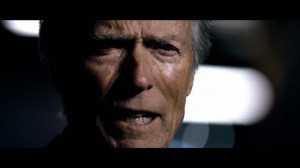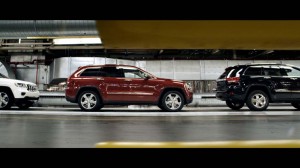
Eastwood may be a Republican strongly opposed to the auto bailout but that hasn't stopped critics from insisting the Chrysler ad was a paid commercial for the Obama Administration.
What would Dirty Harry do? It might take a no-nonsense cop to sort through the political firestorm that has been generated by the much-watched and widely discussed 2-minute Chrysler commercial – starring actor Clint Eastwood — that aired during this past weekend’s Super Bowl.
Was it “not political” as Chrysler CEO Sergio Marchionne insists? Or was it a less-than-subtle “thank you” to the Obama Administration for the maker’s 2009 bailout? Meanwhile, the controversy was only escalated as it turns out much of the video used in the “Halftime in America” spot was filmed near New Orleans, despite the Chrysler tagline, “Made in Detroit.”
The “Halftime” commercial was, on the whole, one of the most popular of the many ads to run during Super Bowl XLVI according to a variety of tracking sources, including Ace Metrix and the consumer panel put together by newspaper USA Today. The unusually long spot – which followed the format of a commercial featuring rapper Eminem during the 2011 bowl game – took aim at the malaise and fears that seem to be overwhelming America today. One might argue that the message could have come from either political party and almost hinted at the legendary “Morning in America” campaign used three decades ago by then presidential candidate Ronald Reagan.
“It’s halftime in America, too. People are out of work and they’re hurting. And they’re all wondering what they’re going to do to make a comeback,” said Eastwood, sounding a lot like his Dirty Harry character. “The people of Detroit know a little something about this. They almost lost everything. But we all pulled together. Now, the Motor City is fighting again.”
But it also seemed, to critics, to flaunt the government-funded 2009 auto industry bailout. Such GOP activists as Carl Rove declaring it overtly political – despite the protestations of both Marchionne and Eastwood.
“I was, frankly, offended by it,” Karl Rove said Monday on Fox News. “I’m a huge fan of Clint Eastwood, I thought it was an extremely well-done ad, but it is a sign of what happens when you have Chicago-style politics.”
At a time when virtually everything has become angrily politicized, the storm raging over the commercial is perhaps no surprise. And critics are clearly ready to shout out against anything that hints of success in connection to the bailout – even as proponents, including Pres. Barack Obama himself, point to the turnaround of the auto industry as a sign the bailout worked.
But Chrysler – if at all possible — is struggling to stay on the sidelines in that debate, at least in the terms of the upbeat message of the “Halftime” commercial.
“It has zero political content,” insisted the Chrysler CEO during a radio interview. “I think we need to be careful, and God knows, I mean I can’t stop anybody from associating themselves with a message, but it was not intended to be any type of political overture on our part. We are as apolitical as you can make us.”
For his part, a spokesman for Eastwood argued, “The ad is not intended to have a political message, but rather one of American pride and job growth.”
Clearly, one might question whether Eastwood would have been the best choice for a pro-Obama commercial. He was recently quoted as noting that he is a life-long Republican and has never voted for a Democratic candidate. Once considered a possible running mate by George H.W. Bush, the actor also has spoken out against the $85 billion automotive bailout.
Exactly how much Eastwood was paid to serve as on-camera narrator isn’t being revealed, though some reports suggest the figure ran $10 million – or higher. But his spokesperson confirmed that the money was being donated to charity.
And though Eastwood is a widely regarded filmmaker in his own right, he didn’t participate in the spot’s production. That was overseen by Chrysler’s lead advertising agency, Wieden+Kennedy.
As with the Eminem spot, some of the images come from Detroit – specifically the assembly line images shot along Chrysler Jeep plant in Detroit. But the rest of the commercial was filmed around the country, primarily near New Orleans, as well as Los Angeles and San Francisco.
Further fueling the controversy swirling around “Halftime in America,” the video briefly was pulled from the official Chrysler page on Youtube on Monday, a notice stating, “This video is no longer available due to a copyright claim by NFL Properties LLC” appearing in its place.
Initially, both Chrysler and the NFL insisted they had no knowledge of what had happened – the automaker sending journalists an alternate link (and scores of users filling in the gap by posting the commercial on their own).
An NFL spokesperson later insisted that the football league had not asked to have the spot blocked, though the confusion grew when Google – which owns the popular video site — issued a statement saying, “YouTube expeditiously removes content when it receives a copyright notification. We reinstate content if we receive a retraction from the party who originally submitted the notification.”
There have been numerous reports claiming to have the inside word, including one that suggests a low-level NFL employee may inadvertently have decided that the use of the term, “halftime” violated the league’s almost paranoid effort to protect its control over game-related topics and terms.
Whatever the reason, by midday Monday “Halftime in America was back up on Chrysler’s official Youtube page.

